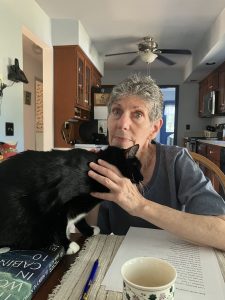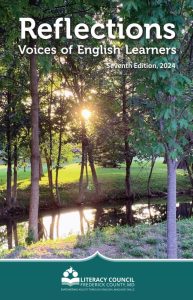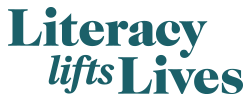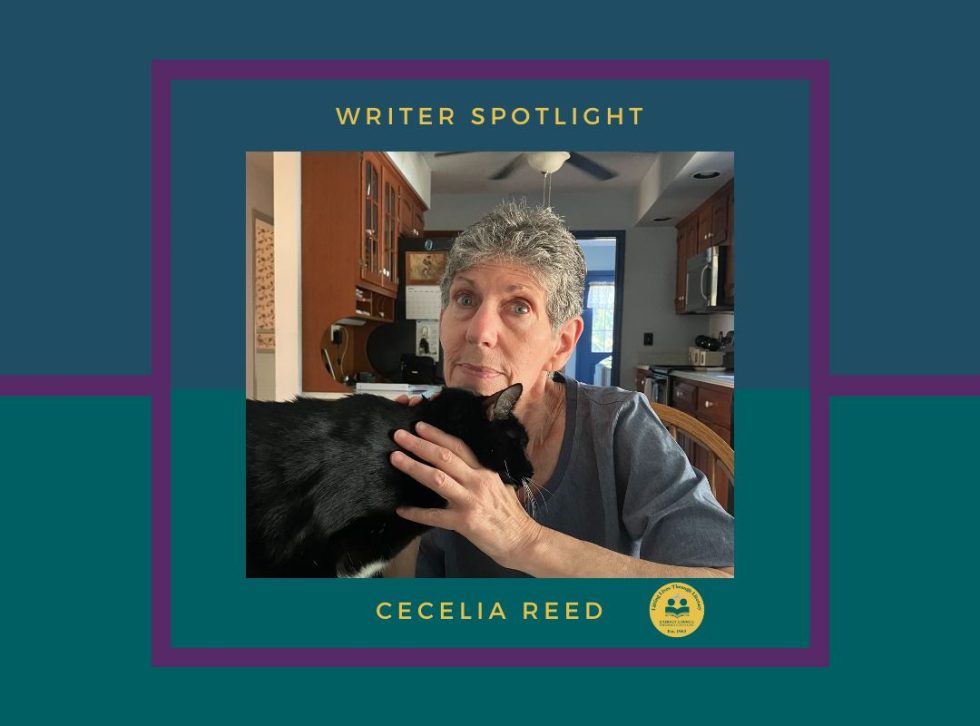Life After Retirement: A Literacy Council Volunteer’s Perspective
How very strange—and wonderful— it is to realize that, after working at something for most of your adult life, you still have the capacity to learn. 
I am someone who avoids too much introspection, but that changed when, after a long career as an editor and writer, I retired from the Smithsonian Institution. Anyone who has gone through that rite of passage knows that figuring out the “next steps” in one’s life isn’t always a piece of cake. I started to feel as if I were in danger of free fall if I didn’t start making myself useful again, and fast. I was starting to feel a little unmoored without any deadlines to regulate my daily life. Friends stopped giving me cruise brochures and suggested I put my editorial skills back to work, this time as a volunteer. After a few early and unsatisfying attempts, I learned about the Frederick Council Literacy Council, where I started contributing to the monthly newsletter, creating content as needed.
I admired the council’s mission, to provide adults with “pathways to essential literacy skills,” tutoring English as Second Language learners in one-to-one sessions and classes, and through parent and workplace literacy programs. But it wasn’t until I started learning more about the council’s 60-plus years of outreach helping adults to achieve not only literacy goals, but also many life goals, that I recognized what a special place I had found.
I read about volunteers who helped students learn English and guided them through rigors of American life, such as finding employment, filing tax returns, applying for mortgages, buying a car, dealing with financial issues, and, of course, becoming a U.S. citizen. I learned about friendships that lasted across generations.
As I conducted interviews to “spotlight” tutors and students, I heard about the strong bonds that formed among them, even through the Covid pandemic era. Two stories come immediately to mind. The first was that of tutor Hilary and her student, Magda, a retired woman in her 70s who came to the U.S. from Venezuela several years ago. She was determined to learn English and live a meaningful life, and Hilary was the Literacy Council tutor assigned to help her achieve those goals, including preparing her for the U.S. citizenship test. Hilary proudly shared, “Magda passed the first time with a perfect score.” Then there was Ed, who clearly enjoyed the polyglot nature of his class, where the students he tutored became fast friends despite the language differences. He was “amazed” at the strength and resilience of his students who were simultaneously puzzling out the intricacies of living in a new community and learning a new language and culture. The most satisfying part for him of volunteering with the Literacy Council? The experience has helped him to better understand how people manage to live full lives with relatively little. For him, “The students are the teachers.”
Those words were in my mind when I began helping with the editing and production of the Literacy Council’s annual literary magazine, Reflections: Voices of English Learners. I worked on the project with ESL coordinator Catherine Coundjeris, the editor of the publication, which features the students’ original stories and poems created in Catherine’s writing classes. A volunteer with the council since 2011, Catherine, who is a writer and poet as well as a teacher, had the idea to offer writing classes to ESL students, thinking that writing proficiency would also be a useful tool as they pursued their future goals. Then, she recalled, something unexpected happened: “I started getting these wonderful stories about their lives.” She believed the stories deserved to be told beyond the classroom, and a magazine would be the perfect showcase. Now, the seventh edition of Reflections: Voices of English Learners, will launch in February 2025.
 The moment I read the first manuscript I knew that I would be working with material that was in many instances unlike anything I had encountered before. The stories were written by students from more than 20 countries and were drawn from their personal experiences as well as their imaginations. Editing (aside from the obvious spelling and factual errors) was mostly guided by Catherine’s prime directive: “We lightly edit, maintaining the integrity of the individual voice…”
The moment I read the first manuscript I knew that I would be working with material that was in many instances unlike anything I had encountered before. The stories were written by students from more than 20 countries and were drawn from their personal experiences as well as their imaginations. Editing (aside from the obvious spelling and factual errors) was mostly guided by Catherine’s prime directive: “We lightly edit, maintaining the integrity of the individual voice…”
Nevertheless, my first impulse was to rewrite almost everything, until I started to relate to the copy in a different way. It was as if I could insert myself into some of the stories. They took on a flow, and I went along for the ride. I was touched by the giddy enthusiasm invoked by one writer’s description of her debutante party 30 years ago in Brazil—and how the loss of a gift from her grandfather resonates with her still. I marveled at the arduous journey by rail taken by a group of pilgrims from Nepal to holy places in India, which included a description of cooking prasad (food prepared in earthen pots as a sacred offering to a deity) that was downright magical. I could almost hear the laughter of one Syrian family in the memory of a long-ago day spent gathering sweet figs. I felt my heart react to stories of almost unbearable losses—of cities, villages, homes, loved ones, personal identity. I was likewise heartened by the writers’ eclectic passions and stories about tremendous change and personal renaissance in a new world.
I admit I was a little exhausted by the time the work on Reflections was done. Only one question remains: Catherine, when do we start work on the next edition?



